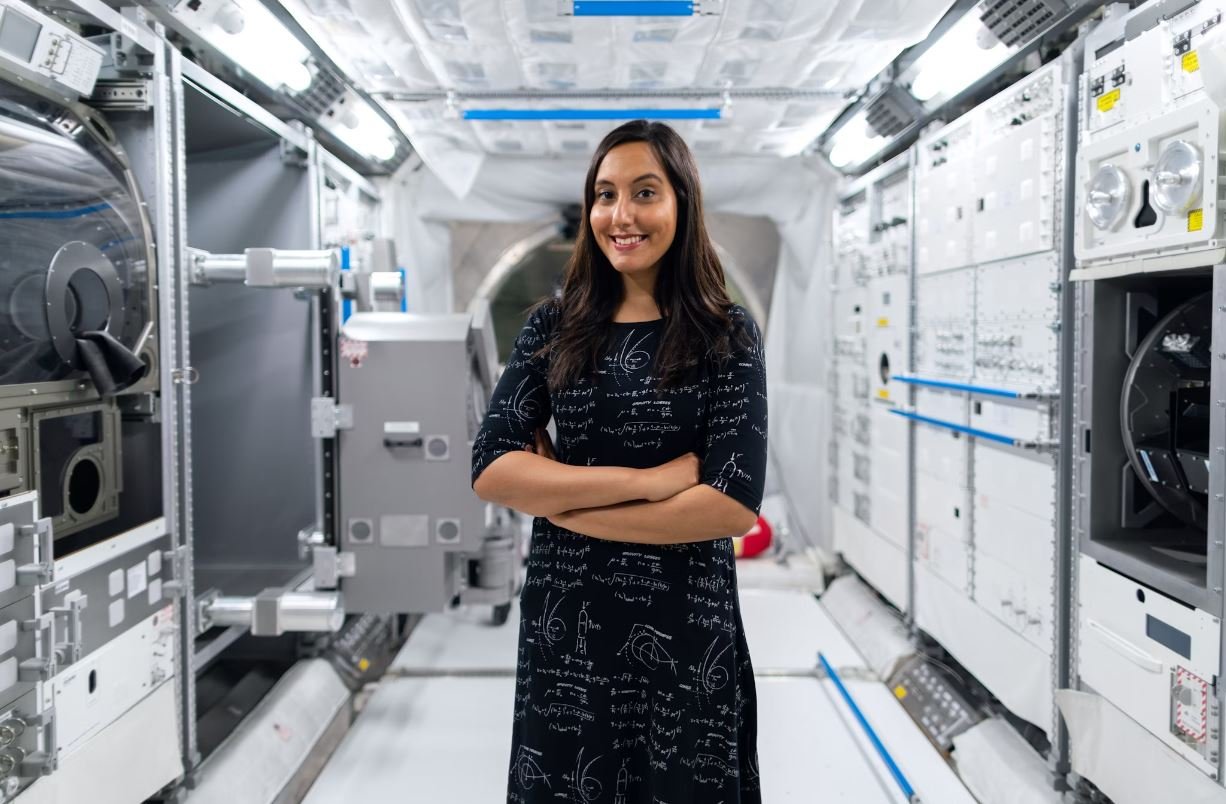Top AI Universities in the World
Artificial Intelligence (AI) is a rapidly growing field with applications ranging from machine learning to robotics. Pursuing a degree in AI can open up exciting career opportunities. To help you make an informed decision, we have compiled a list of the top AI universities in the world.
Key Takeaways
- AI is a rapidly growing field with diverse applications.
- Top universities provide excellent education and research opportunities in AI.
- Choosing the right university can greatly impact future career prospects in the field.
1. Massachusetts Institute of Technology (MIT)
MIT is renowned for its technological advancements and has a strong focus on AI research. The institution offers a range of AI-related courses and initiatives, including the renowned Media Lab and the MIT Computer Science and Artificial Intelligence Laboratory (CSAIL). Students at MIT receive top-notch education and have access to state-of-the-art facilities.
MIT’s CSAIL is known for its groundbreaking research in AI and its applications in various industries.
2. Stanford University
Stanford University is a leader in AI research and education. Its AI Lab and the Stanford Institute for Human-Centered Artificial Intelligence (HAI) bring together experts from various disciplines. Stanford offers a comprehensive curriculum and encourages interdisciplinary collaboration.
Stanford’s HAI focuses on developing AI technologies that serve humanity and address ethical considerations.
3. Carnegie Mellon University (CMU)
CMU’s School of Computer Science is internationally recognized for its AI programs. The university offers a multidisciplinary approach to AI education, combining computer science, robotics, and machine learning. CMU’s AI research spans areas such as natural language processing, computer vision, and autonomous systems.
CMU’s Robotics Institute is a pioneer in the development of robotic systems that utilize advanced AI algorithms.
Table 1: Comparison of Top AI Universities
| University | Location | AI Research Initiatives |
|---|---|---|
| Massachusetts Institute of Technology (MIT) | Cambridge, MA, USA | Media Lab, CSAIL |
| Stanford University | Stanford, CA, USA | AI Lab, HAI |
| Carnegie Mellon University (CMU) | Pittsburgh, PA, USA | School of Computer Science, Robotics Institute |
4. University of California, Berkeley
UC Berkeley‘s AI research is focused on cutting-edge technologies and their application in real-world scenarios. The university offers a wide range of AI courses and promotes collaboration across engineering, computer science, and other relevant fields.
UC Berkeley’s AI researchers have contributed to significant advancements in computer vision and natural language processing.
5. University of Oxford
Oxford’s Department of Computer Science is highly regarded for its AI research. The university provides comprehensive training in AI and places a strong emphasis on both theoretical foundations and practical applications of the field.
Oxford’s DeepMind collaboration has resulted in breakthroughs in AI research, particularly in reinforcement learning.
Table 2: QS World University Rankings for AI and Machine Learning
| Rank | University | Country |
|---|---|---|
| 1 | Massachusetts Institute of Technology (MIT) | United States |
| 2 | Stanford University | United States |
| 3 | University of Cambridge | United Kingdom |
6. University of Cambridge
Cambridge’s Department of Computer Science and Technology offers exceptional AI programs and research opportunities. The university emphasizes the importance of AI ethics and responsible innovation in its curriculum.
Cambridge’s Leverhulme Centre for the Future of Intelligence explores the societal impact and governance of AI technologies.
7. ETH Zurich
ETH Zurich, a leading Swiss university, has a strong reputation in AI research. The institution focuses on cutting-edge technologies and fosters collaboration between different departments to tackle complex AI challenges.
ETH Zurich’s AI for Good initiative aims to utilize AI to address global challenges, including climate change and healthcare.
Table 3: AI-related Research Papers Output (2016-2020)
| University | Research Papers Output |
|---|---|
| Massachusetts Institute of Technology (MIT) | 10,342 |
| University of California, Berkeley | 8,562 |
| University of Oxford | 7,459 |
Choosing the Right AI University
When considering universities for AI studies, it is essential to evaluate factors such as faculty expertise, available resources, industry collaborations, and research output. Additionally, considering the university’s approach to AI ethics and responsible innovation can provide a well-rounded education.
Whether you aim to become an AI researcher, engineer, or data scientist, attending a top AI university can significantly enhance your knowledge and career prospects in this dynamic field.

Common Misconceptions
“Top AI Universities in the World” is a hot topic in the field of artificial intelligence. However, there are often misconceptions surrounding this topic that may lead individuals to misunderstand the characteristics, rankings, and reputation of these universities.
Misconception 1: Only Ivy League universities can be considered top AI universities
- There are several non-Ivy League universities that have exceptional AI programs.
- Not all Ivy League universities have strong AI departments.
- AI achievements and recognition are not solely determined by institutional prestige.
Misconception 2: Top AI universities are solely based in the United States
- There are internationally renowned AI programs in various countries outside the United States.
- AI research is a global collaborative effort with contributions from universities all around the world.
- Restricting the definition of top AI universities to a single country overlooks significant advancements in AI education and research elsewhere.
Misconception 3: The number of AI courses offered determines the status of a university
- The quality of AI education is not solely determined by the quantity of AI courses.
- Curriculum depth and faculty expertise play a crucial role in evaluating the strength of AI programs.
- Specialized courses and research opportunities may outweigh the availability of a broad range of introductory courses.
Misconception 4: Only universities with large budgets can be considered top AI universities
- Budget size does not necessarily correlate with the quality of AI programs.
- Some universities with relatively smaller budgets have made significant contributions to AI research and innovation.
- The impact and excellence of a university’s AI program should be evaluated based on its research output and faculty expertise.
Misconception 5: Top AI universities are determined solely by national and international rankings
- Rankings can provide helpful insights, but they should not be the sole criterion for evaluating top AI universities.
- The field of AI is constantly evolving, and rankings may not fully capture the cutting-edge research and advancements in the field.
- Factors such as industry collaborations, faculty publications, and research impact must also be considered when evaluating the reputation of an AI university.

Table: Top AI Universities in the World
Below is a list of the top artificial intelligence (AI) universities in the world, based on their research contributions, academic programs, faculty expertise, and industry collaborations.
Table: AI Research Publications by University
This table showcases the number of AI research publications produced by each university within the past 5 years, indicating their dedication to advancing the field.
Table: Faculty Credentials in AI
Here, we present the academic credentials of the faculty members at each institution, highlighting their expertise and qualifications in the field of AI.
Table: Annual AI Research Funding
This table displays the annual funding allocated specifically to AI research at each university, emphasizing their commitment to supporting cutting-edge AI projects.
Table: Industry Partnerships in AI
Explore the various industry partnerships established by the universities, demonstrating their ability to collaborate with leading companies and apply AI technologies in real-world scenarios.
Table: AI Course Offerings
Discover the range of AI-related courses offered by each university, providing students with comprehensive knowledge and practical experience in this rapidly evolving field.
Table: AI Graduate Programs
Here, we outline the graduate programs specializing in AI offered by these universities, nurturing the next generation of AI scholars and professionals.
Table: AI Research Centers
Learn about the specialized research centers dedicated to AI at each university, fostering innovation, interdisciplinary collaboration, and breakthrough discoveries.
Table: Alumni Success in AI
This table highlights the notable achievements of alumni from each institution who have made significant contributions to the AI industry, academia, or entrepreneurial ventures.
Table: AI Networks and Collaborations
Take a closer look at the global networks and collaborations established by these universities, showcasing their engagement with other leading AI institutions.
Conclusion:
The world’s top AI universities showcased in these tables are at the forefront of AI research and education. Their commitment to advancing this field is evident through their extensive research publications, highly qualified faculty, substantial funding, and thriving industry partnerships. The availability of diverse AI course offerings and specialized graduate programs further demonstrates their dedication to shaping the future of AI. With cutting-edge research centers, successful alumni, and extensive global networks, these institutions are driving innovation and pushing the boundaries of AI. As AI continues to transform various sectors, these universities play a vital role in shaping the industry, fostering talent, and collaborating with industry partners, ultimately furthering the development and application of artificial intelligence.
Top AI Universities in the World
Question 1: What are the top AI universities in the world?
Answer:
Some of the top AI universities in the world include Stanford University, Massachusetts Institute of Technology (MIT), Carnegie Mellon University (CMU), University of California, Berkeley, and Harvard University.
Question 2: How are these universities classified as top AI universities?
Answer:
These universities are classified as top AI universities based on their cutting-edge research, faculty expertise, quality of AI education programs, and contributions to the field of artificial intelligence through publications and innovation.
Question 3: Do these universities offer undergraduate AI programs?
Answer:
Yes, many of these universities offer undergraduate AI programs. Students can pursue majors or concentrations in AI, machine learning, or related fields.
Question 4: Are there any specific admission requirements for AI programs at these universities?
Answer:
Admission requirements may vary for each university, but typically, applicants must demonstrate strong mathematical, programming, and analytical skills. Additionally, they may need to submit standardized test scores (such as SAT or ACT) and showcase their interest and knowledge in AI through essays or interviews.
Question 5: Are there research opportunities in AI for undergraduate students at these universities?
Answer:
Yes, many of these universities provide research opportunities in AI for undergraduate students. Students can work with faculty members or research groups on ongoing AI projects and gain valuable hands-on experience.
Question 6: Do these universities offer AI-related graduate programs?
Answer:
Yes, all of these top AI universities offer graduate programs in AI or related fields. They provide master’s and doctoral programs where students can specialize in various aspects of AI, such as machine learning, natural language processing, computer vision, and robotics.
Question 7: What career opportunities are available for graduates from these AI programs?
Answer:
Graduates from these AI programs have a wide range of career opportunities. They can work in industries such as technology, healthcare, finance, and research institutions. Job roles may include AI researcher, data scientist, machine learning engineer, AI consultant, or AI product manager.
Question 8: Can international students apply to these AI programs?
Answer:
Yes, international students can apply to these AI programs. However, they may have to fulfill additional requirements such as demonstrating English language proficiency through standardized tests like TOEFL or IELTS and obtaining a study visa.
Question 9: Are scholarships or financial aid available for AI programs at these universities?
Answer:
Many of these universities offer scholarships or financial aid for AI programs. Students are encouraged to explore the specific scholarship opportunities offered by each university and check eligibility criteria for these programs.
Question 10: Are there online AI programs offered by these universities?
Answer:
Yes, some of these universities offer online AI programs, enabling students to pursue AI education remotely. Online AI programs provide flexibility for professionals or individuals who cannot attend traditional on-campus classes.




